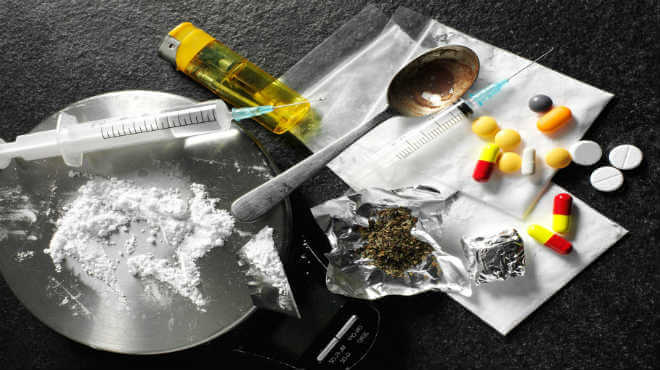This article is written by Oishiki Bansal, a student of Symbiosis Law School, Noida. The article delves into the admissibility of narco-analysis as a scientific test for the investigation process and the constitutional provisions attracted by it.
Table of Contents
Introduction
Imagine a society divided into factions as they were in ‘Divergent’, written by Veronica Roth. Having a faction that only speaks the truth, honesty and morals are their values. There are no legal consequences of using the truth serum to verify that the person is speaking the truth or not. In such a scenario, the identification of criminals and the administration of justice would have been very easy. However, if seen in a realistic way, forcing someone to speak against his will would mean invading the privacy of the person.
In the present time, with the growth of technology and new means to aid justice, the Indian Evidence Act,1872 still does not cover the scientific tests, also known as ‘deception detection tests’ that aid investigations. The three scientific tests that are commonly used in the investigation process are:
- Polygraphy (lie detector)
- P-300 (brain mapping)
- Narco analysis (truth serum)- In narco analysis, the person is sent in a state of disinhibition, i.e., a state where the person is not conscious of his actions. It is done by administering a solution of sodium pentathol and distilled water into the veins by a qualified anaesthetist. The test is conducted by recreating scenarios or situations or by asking questions of the testifier and prodding him to answer. The solution works like a truth serum as the testifier is not in a state to think consciously about what he is answering. The tests pose a lot of problems, one of them being the administration of too little narcotics. The testifier can fake scenarios and can resist the process of disinhibition, whereas if the narcotic is administered in higher amounts than required, the testifier can go into a state of unconsciousness, which could in turn even cause him to go into a coma. The testifier’s vitals are continuously monitored by a team of doctors to prevent any health issues. The whole process is video recorded and a report is given by the doctors for further consideration and to help find more evidence.
This test has always been controversial due to its nature and the way it is conducted. It is often questioned whether the narco-analysis test infringes the right to be protected against self-incrimination and the right to life.
Constitutional provisions on Narco-analysis in India
Article 20(3) of the Indian Constitution provides that, “no person who is accused of a crime can be compelled to be a witness against himself”.
One can seek protection under Article 20(3) only if the following requirements are fulfilled –
- Only an accused can avail of the protection guaranteed.
- Only when the accused is compelled to be a witness against himself.
- Only available if a person is charged with an offense.
The statements made by the testifier are not admissible in the Court; they can only be used for further investigation purposes.
When evidence procured comes into the inhibition of Article 20(3) of the Constitution:
- The person who made the statement must have been accused of committing an offense at that time.
- The statement had material applicability to the criminality of the accused.
- The accused was forced or compelled to make that statement.
- The force used on the accused should come under duress.
‘Duress’ includes compulsion or force applied through some physical or objective act and does not refer to the state of mind of a person while making the statement. Therefore, it is contested that narco-analysis does not amount to compulsion as it is a mere process of extracting information by the accused through disinhibition. The results are ascertained from the video recorded during the test which could help in disseminating more information on the case. However, it is still a controversial topic as the accused makes the statement himself unlike the other tests, and sometimes the statement made can be self-incriminatory. It cannot be ascertained before the Court whether the test will be self-incriminatory or not. Article 20(3) of the Constitution can be appealed if the statements made by the accused are self-incriminatory and will be rendered inadmissible in the Court even though they provide a piece of evidence or lead to dissemination of more facts or evidence.
In the case of State of Bombay, v Kathi Kalu Oghad(1961) the Court held that it must be shown that the testifier was compelled to make a statement that was self-incriminatory to attract the provisions of Article 20(3) of the Constitution.
The narco-analysis test is also contested on the grounds of the right to life and privacy, as provided under Article 21 of the Constitution. It is argued that using extraneous means to force a person to speak and forcible intrusion into one’s mind is an invasion of one’s privacy. Also, the mental torture that one goes through during this test is violative of the right to live with human dignity under Article 21.
The practice of narco-analysis in India
The practise of narco-analysis has continuously been used in India. The Courts in many instances have permitted the use of different scientific tests or deception detection tests for further investigation. In India, the narco-analysis test is conducted by a team that comprises of the following medical practitioners and other officers:
- An anesthesiologist
- A psychiatrist
- A clinical/ forensic psychologist
- An audio-videographer
- And supporting nursing staff.
The test is read and analysed by a forensic psychologist, who then presents a report accompanied by a video recording stored on a CD. If the Courts find it necessary, then this test is further verified through brain mapping and polygraph (lie detector) test.
Admissibility of narco-analysis in the court
Just like a confession made in the police station is not admissible, a statement made during the narco analysis test is not admissible in the Court, except under certain circumstances when the Court thinks that the facts and nature of the case permit it. The Courts have, however, provided differing views on the permissibility of conducting narco-analysis. In the case of SeIvi Murugesan v. State of Karnataka,(2010), the High Court of Karnataka explored the issue of whether narco-analysis is a compulsion on the invasion of the human body or not. Justice Majage referred to Section 53 (1) of the Criminal Procedure Code,1973 which provides for the use of reasonable force by a medical practitioner at the request of a police officer for ascertainment of facts that could help in finding new evidence. He stated that the narco-analysis test done by a qualified medical practitioner within a prescribed manner is justified under Section 53(1) of the CrPC. Further, supporting his view with the help of Section 39 of the Criminal Procedure Code, he stated that it is the duty of every individual to give information about a crime, and Article 20(3) of the Constitution cannot hinder the process of acquiring the truth. This view has further contended in the case of Ramchandra Ram Reddy v. State of Maharashtra,(2004) where the petitioner argued that the narco-analysis test is an invasion of the body and thus violates Article 20(3) of the Constitution. The Court shared similar views as in the case of SeIvi Murugesan v. State of Karnataka and further stated that contrary to the belief sometimes the test could be used to prove testifiers innocence.
Various Courts have opined that the Constitution framers while formulating the right against self -incrimination, did not intend to interfere in the process of proper and efficient investigation. However, the Courts have emphasized two conditions for allowing scientific tests on the accused:
- The totality of a case’s circumstances as well as context.
- The setting of the case is such that reasonable doubt should exist to permit the tests.
Criticism of narco-analysis test
The question that arises with the use of the narco-analysis test is whether conducting a test that invades one’s body and violates privacy by intruding on the mind of the accused is reasonable? Whether it is legal to use inhuman ways to find the truth? The reliability of narco tests has always been questioned. Whether it is right to inflict such pain on a person when 100% accuracy in the results can’t be promised? There have been many cases where the testifiers have given false statements even in narco-analysis. It is argued that only interviewees, who have been efficiently trained in asking questions should conduct the test, as it is the process of reviving a memory that the testifier has already forgotten which could lead to distortion of facts. The importance of consent has always been emphasised by all the Courts for the narco test. Without the consent, the narco-analysis test should not be conducted and it is deemed that the test has been fair without any compulsion without knowing what goes behind giving the consent.
Court Precedents
Dinesh Dalmia v. State by Spe (2006)
In the case of Dinesh Dalmia v state by Spe,(2006), the Court held that if the accused does not cooperate with the investigation team and the investigation is unable to complete within time and if the nature of the case permits, the investigation team can go forward with scientific tests to find any leads for the case.
Sh. Shailender Sharma v. State & Another (2008)
Further in the case of Sh. Shailender Sharma vs State & Another (2008), the Court took forward the same view and stated that narco-analysis and other scientific tests help in determining evidence in the case helping the investigation.
Therefore, the Courts in India have recognised that the scientific tests do not violate the protection given under the Constitution and a narco-analysis test can be conducted if the circumstances of the case allow, although, all the Courts have presented the view that any statement that is self-incriminatory cannot be permitted in the Court as evidence and prosecution cannot rely on the said statement.
The right against self-incrimination
Every coin has two sides. On one hand, the narco-analysis test helps in discovering new facts, leads or evidence which could aid the investigation and act as a catalyst in the process of justice. On the other hand, narco-analysis, if done forcefully or used unfairly, can attract the protection guaranteed under the Constitution, such as the fundamental right to life, privacy and the right against self-incrimination. The Courts have recognised the narco analysis as a permissible means of investigating. It also comes in handy when the interest of society at large is involved, and it is more important than the interest of an individual. In Rojo George Vs. Deputy Superintendent of Police (2006), the Courts held that the ways in which the crime is conducted in present times are more sophisticated and technology-equipped, and therefore, the conventional means of investigating may not necessarily lead to a fair result. The more time an investigation takes, the more time the actual offender gets to cover up his crimes. Thus, the views on narco-analysis have always been mixed and have now been converted into a never-ending debate.
Conclusion
With the development in various human rights, narco-analysis has always been criticised on the view that it infringes the right to privacy and the right to life of the accused. Since it is the only deception detection test that requires the testifier to make statements, it is always subjected to the question of whether the provisions of Article 20(3) of the Constitution are attracted or not. The Courts have contended that conducting narco-analysis is permitted if the nature and circumstances of the case are such that a narco test is necessary. The accused should have consented freely to the narco test and there should be no sign of compulsion or force on the accused. The statements given by the accused cannot be treated as evidence and the prosecution cannot rely on such statements to present their case.
References
- https://www.jstor.org/stable/pdf/43952091.pdf?ab_segments=0%252FSYC-5910%252Ftest&refreqid=excelsior%3Aba43c7620f7bd876982fc00f3d29063f
- https://madhavuniversity.edu.in/nacro-analysis-test.html
- http://www.rmlnlu.ac.in/webj/sonakshi_verma.pdf
- https://www.ncbi.nlm.nih.gov/pmc/s/PMC3171915/#ref5
- https://legaldesire.com/narco-analysis-test-its-criticism/
Students of Lawsikho courses regularly produce writing assignments and work on practical exercises as a part of their coursework and develop themselves in real-life practical skills.
LawSikho has created a telegram group for exchanging legal knowledge, referrals, and various opportunities. You can click on this link and join:
https://t.me/joinchat/J_0YrBa4IBSHdpuTfQO_sA
Follow us on Instagram and subscribe to our YouTube channel for more amazing legal content.
 Serato DJ Crack 2025Serato DJ PRO Crack
Serato DJ Crack 2025Serato DJ PRO Crack











 Allow notifications
Allow notifications


